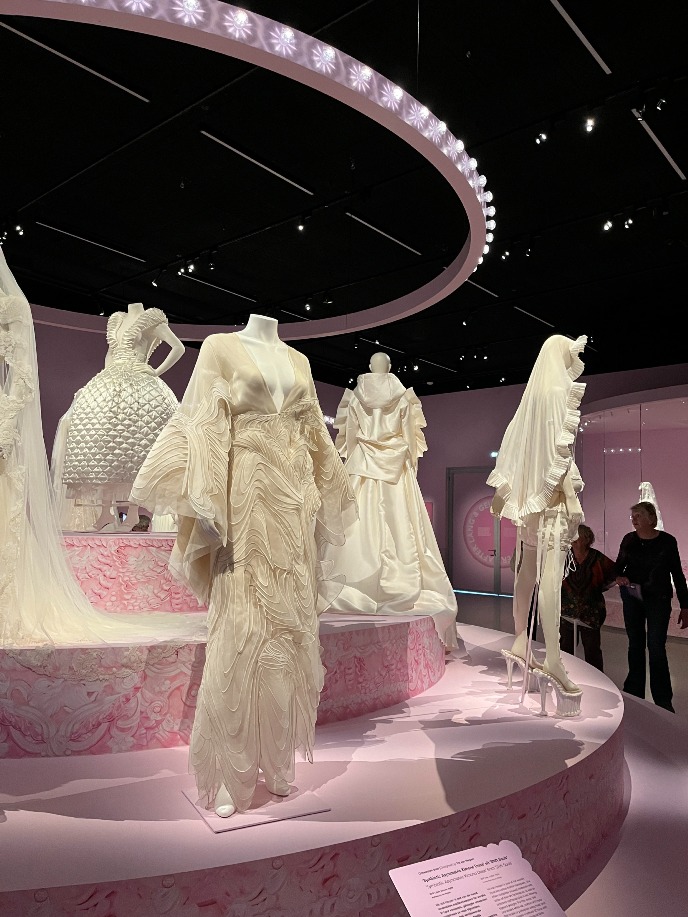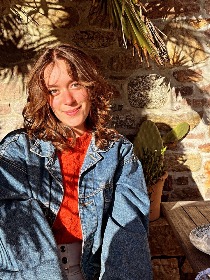Reimagining Tourism in a Global Classroom
| Date: | 20 December 2024 |
| Author: | Marie Jacquet |

In this blog post, Marie takes us through her journey a few months into her Master's in Sustainable Tourism & Society at the University of Groningen. In this post, she opens up about why she chose this path, what she's been learning, and how it's different from her experience in France. From exploring cultural geography to diving into the world of ethical tourism, Marie’s story is all about finding purpose in travel and how we can make it more sustainable. Keep reading to see if her experience resonates with you and maybe even inspires your own journey in the world of responsible tourism.
A Journey of Discovery
My name’s Marie, I’m a 24 years-old student from France. After having graduated from a Technical Degree in Tourism and a Bachelor’s degree in Applied Foreign Languages, I took two years of freedom during which I worked, explored certain parts of the world, and above all took time to find out what was really important to me for my future. I was sure I wanted to go back to school after these two years of itinerancy and freedom, but it was a question of knowing in which sector. These journeys were punctuated by unforgettable human encounters, breathtaking landscapes, heart-warming dishes and priceless cultural treasures, but also by ever-increasing numbers of foreigners pushing back the limits of penetrability, their footprints left in these once pristine places, companies attracted by the lure of profit, but above all impacts on populations both positive and negative.
Finding My Path
I've been a tourist as well as an observer during these journeys, giving me food for thought and a deep desire to change things. It was naturally the combination of my previous studies, my wanderings, my professional experience and my profound love for people that led me to choose a Master's degree in Cultural Geography: Sustainable Tourism and Society, in Leeuwarden at the University of Groningen.
Having now completed the first module, I'm very glad I chose this Msc, the courses and teachers have helped me confirm that I hadn't taken the wrong path. Also, I didn't expect such a good adaptation after not having been to university for two years !
A New Approach to Learning
For me, the teaching method is very good, but also really different from the one we usually have in France. Classes are more interactive, and the proximity with the professors allows for more open discussion between students and with our teachers. It also leaves room for debate, and for everyone's ideas. These are very diverse, and it's one of the pleasures of studying in a Master's program in English with international students from the four corners of the globe: from Brazil to China, via Tanzania, Poland, Nepal or the Fiji Islands, we learn from each other, and it's so enriching. The pace is very intense over a short period of time, but when you're deeply interested in what you're studying, it's much easier!
❝ Classes are more interactive, and the proximity with the professors allows for more open discussion between students and with our teachers. It also leaves room for debate, and for everyone's ideas. ❞
Rethinking Tourism
This master's degree also invites us to constantly use our reflective and critical thinking about what's currently happening in the world of tourism, but also about how to shape ethical tourism that respects heritage, people and the planet. We've all been tourists many times, especially our generation who travel further and further and earlier, so it's only natural that our past experiences are tools that help us shape and use our thoughts in the program!

Learning Beyond the Classroom
The excursions for the end of the semester also gave us a chance to relax before exams, and to link what we'd learned with what was happening in the field. For example, we visited the Fries Museum as part of our Critical Approaches to Cultural Heritage and Identity course. I visited the “Ja, Ik wil” exhibition, which featured a number of wedding dresses from the 18th century to the present day, tracing part of the history of women in the Netherlands, but also showing how heritage is not always collected in a monument, but sometimes in certain items of clothing. It was also about visiting a museum, the best-known and most widespread place for displaying heritage, and thinking critically about how these works were arranged, presented and displayed, and by extension how all this plays a role in our interpretation of heritage. I wouldn't necessarily have thought of analyzing a museum exhibition in this way before, but now it's a reflex and it’s so enriching! It allowed us to put aside a superficial interpretation and to gain instrument to have a deeper thinking about how culture is represented to us. It’s also about how heritage and identity are related, shaping one another. I enjoyed this exhibition and would like to return to the Fries Museum to visit other exhibitions!
Looking Ahead
In a nutshell, that’s what you can expect when you’re studying this master, an intense rhythm punctuated with rich exchanges with classmates, caring teachers, meaningful and intuitive content, leading to the master’s thesis from April to June!
About the author

Marie Jacquet is a student of the MSc. in Cultural Geography, track Sustainable Tourism & Society.

